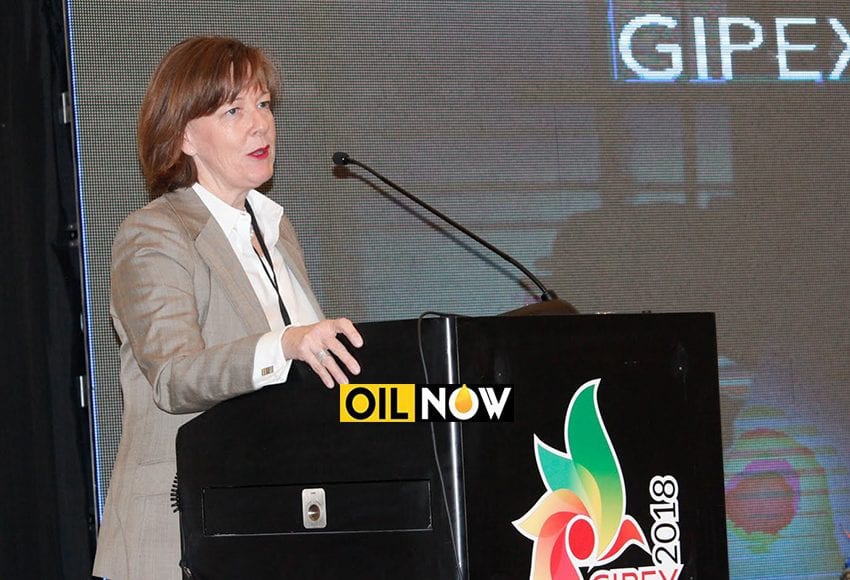Civil Society’s input – informed or not – ultimately guides the development of an emerging oil and gas industry, and as such, in a Guyana context, there is need for a greater embrace of collaboration between the industry and the public, since governments are ultimately elected trustees of a country’s national patrimony.
It is with this in mind, former Premier of Alberta Province, Canada, Alison Redford, was loud in commendation for the organizing partners responsible for staging the inaugural Guyana International Petroleum Exhibition and Summit, while yet in its infancy stage.
Having led the Alberta Province with a century’s long tradition of oil production and still in possession of the third largest discovered crude reserve in the world, the former Alberta Premier said GIPEX 2018 is an encouraging step and that countries like Canada had failed to do this when it discovered its petroleum basin more than a 100 years ago.
Redford, in bringing the Canadian experience to the petroleum summit reminded that since the trajectory of the industry is in effect dependent on the citizenry and civil society, it is imperative resources such as oil be developed through meaningful partnerships.
Speaking to the importance of forums such as GIPEX, she said a sore notion which repeatedly rears its proverbial head in oil and gas discussions, is that of ‘meaningful participation and trust between government and its people.’
According to the former Premier, this obtains, since it would be difficult to move the industry forward in the absence of trust and “that’s why these forums are so important…”
Redford in her talk with the industry executives on the ‘Effective Management of Guyana’s Oil and Gas Resource’ was adamant too that dialogue, consultations and partnerships between policy makers, civils society and the industry, is a prerequisite for the successful development of the resource.
According to Mrs. Redford it will not matter how effectively and efficiently an administration’s stewardship over the industry is. Civil society, she said, “has an opinion.” An opinion that may be based on fact, Hollywood movies or advertisements on the internet, “but at the end of the day it is civil society’s opinion that will determine whether or not a country or government of any political stripe is actually able to develop the resource.”
Addressing the working session on the first day of GIPEX 2018, the former Alberta Premier was unyielding in her position that ignoring civil society’s input will eventually cause concerns, however ill-formed, to develop.
“Oil and Gas is very technical but at the end of the day whatever they (citizens and civil society) understand is what they will want to talk about and how they will participate in the conversation,” she said.




Yes, respect for “civil society’s opinion” and freedom of the press. I agree. However ” civil society’s opinion” ought to be challenged in a civilized way when its facts are of a questionable nature or are simply inaccurate. If not, fake news win the day and we might as well “Cry ‘Havoc!’, and let slip the dogs of war”.